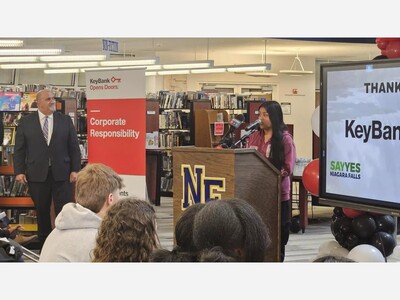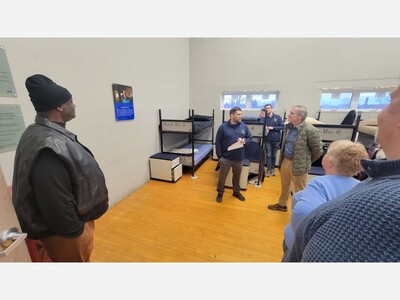The cure for what ails us
By Michael Barksdale
Special to the Express
On Monday evening, a simple conversation turned into something much deeper. Earlier that day, I had received a phone call from a partner in advocacy that got me thinking about education in our city. Later on that day, while talking with Mr. Trent Hamilton at the Entrepreneur School of Thought, I shared my thoughts about the challenges facing the uneducated and undereducated in Niagara Falls.
But Mr. Hamilton added another layer that hit me hard—he reminded me of the miseducated. That insight opened my eyes even wider.
At first, these words—uneducated, undereducated, miseducated—sound like they’re all saying the same thing. But when you look closer, they tell very different stories. And here in Niagara Falls, those stories affect our neighborhoods, our workforce, and the future of our children.
Uneducated: The Left Behind
The uneducated are those who never really had access to formal schooling or basic literacy. In Niagara Falls, we still see this today, often among older adults who slipped through the cracks decades ago.
Think of someone who never finished elementary school because family responsibilities or poverty forced them into work. Now, they struggle to fill out job applications, manage bills, or help their grandchildren with homework. This isn’t just a personal setback—it limits how our entire community grows.
Undereducated: The Shortchanged
Then there are the undereducated—people who made it through school but didn’t get the depth of education they needed.
We see this when high school graduates leave with diplomas but can’t pass a civil service test, enlist in the military, succeed in college courses, or land stable jobs. It’s not about their intelligence—it’s about a system that gave them a certificate but not the skills.
For Niagara Falls, this shows up in the numbers. Too many students graduate unprepared for the jobs that are coming to our region. That leaves them underemployed, underpaid, and frustrated.
Miseducated: The Misled
And finally, the miseducated. These are the people who did get an education—but what they were taught was flawed, biased, or incomplete.
This one might sting the most because it means we’ve been giving people the wrong tools. Imagine a curriculum that skips over Niagara Falls’ own history of labor struggles, migration, and cultural contributions. Or a classroom that reinforces stereotypes instead of breaking them down.
Miseducation isn’t just about missing facts—it’s about shaping worldviews in ways that hold people back. And when our young people leave school unprepared for today’s world of technology, entrepreneurship, and civic leadership, the whole city feels it.
Why This Matters for Niagara Falls
When we talk about education, we often focus on test scores or graduation rates. But that only scratches the surface. To build a stronger Niagara Falls, we need to ask:
• Who never had a real chance to learn?
• Who got shortchanged by the system?
• Who was taught things that don’t prepare them for real life?
Each question leads us to different solutions. For the uneducated, it’s about access. For the undereducated, it’s about raising standards and support. For the miseducated, it’s about truth and relevance.
This isn’t just theory—it’s advocacy in action. Leaders, parents, teachers, and community members in Niagara Falls all have a role to play in changing the story.
The Bottom Line
Education isn’t just about classrooms—it’s about power, opportunity, and justice. If Niagara Falls is going to thrive, we can’t afford to ignore the differences between uneducated, undereducated, and miseducated. Each requires its own solution, and together they shape the future of our city.
The question is: What role will we play in rewriting the narrative…moving the cheese…changing the paradigm?
Action item-Get Involved
If this conversation resonates with you, don’t just stop at reading. Niagara Falls needs voices, hands, and hearts working together.
• Attend community forums and city school board meetings—your presence matters.
• Volunteer with local groups working on literacy, youth mentorship, or career readiness.
• Partner with organizations like the Niagara Community Information Group (NCIG), which is committed to engaging, enabling, and equipping residents to become empowered advocates.
Together, we can close the gaps, rewrite the narrative, and build a city where every resident—whether highly educated, uneducated, undereducated, or miseducated—has the chance to rise.







